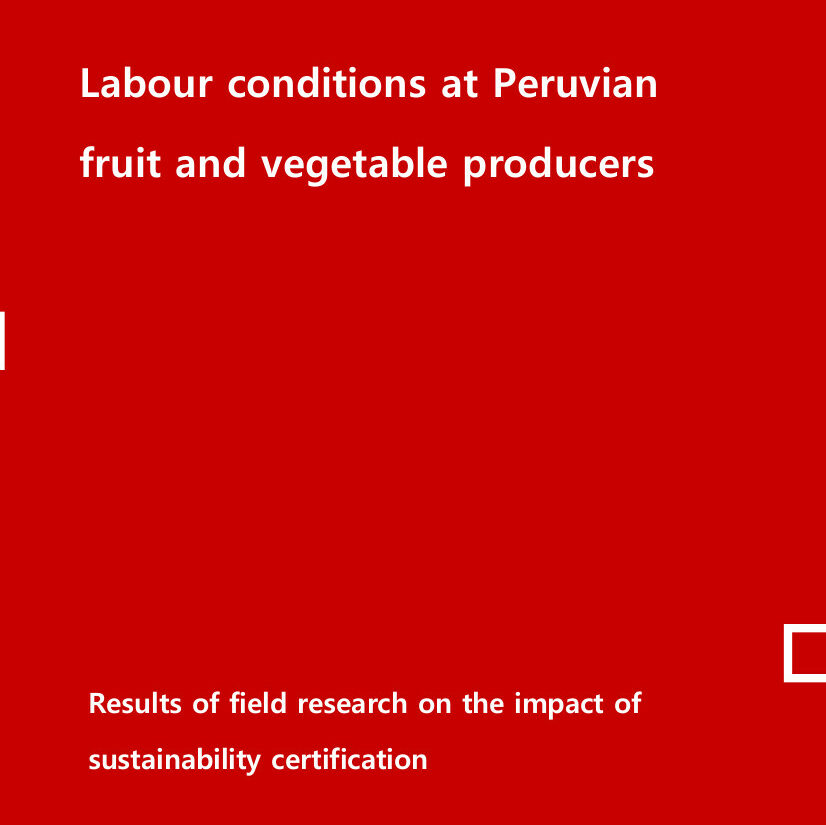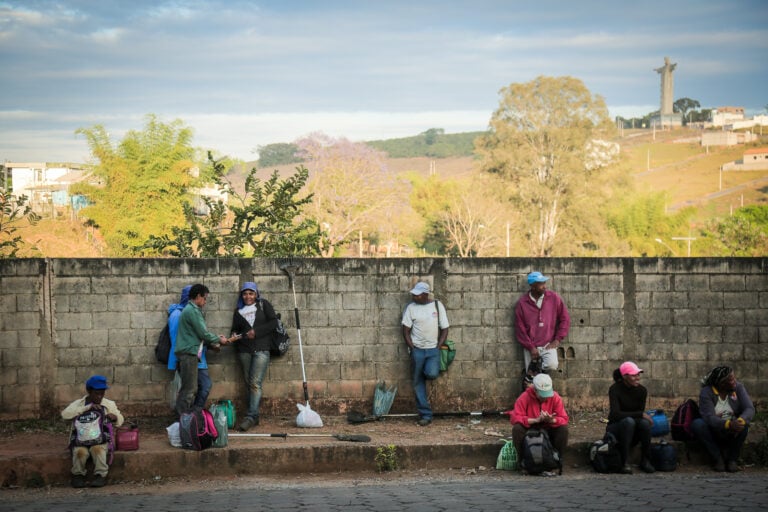
Labour conditions at Peruvian fruit and vegetable producers
Results of field research on the impact of sustainability certification

A large share of fruit and vegetables sold in European supermarkets are grown in developing economies where enforcement of labour laws is often weak as labour inspectorates are notoriously understaffed. While more food is available and traded internationally than ever before, most of the 1.3 billion farmers and agricultural workers producing food still face poor economic, social and environmental conditions.
Sustainability certification initiatives have become a popular way for food companies to reassure consumers that the goods have been produced under decent working conditions. Over the past few decades, a plethora of sustainability certification systems have been set up to address environmental, economic or social issues. However, little information is available about the effectiveness or impact of these sustainability certification initiatives for workers.
This report presents findings of research into the impacts of sustainability certification initiatives systems on working and employment conditions in the Peruvian agro-export industry. It focuses on ten Peruvian fruit and vegetable producers: six companies under review have a sustainability certification (Fair for Life, Rainforest Alliance or SA8000) and four companies are not certified.
Revised edition in October 2018
Partners
Publication

Related news
-

-
Hungry for profits Published on:
 Vincent KiezebrinkPosted in category:Publication
Vincent KiezebrinkPosted in category:Publication Vincent Kiezebrink
Vincent Kiezebrink
-
 Modern slavery is still lurking in your coffee cupPosted in category:News
Modern slavery is still lurking in your coffee cupPosted in category:News Joseph Wilde-RamsingPublished on:
Joseph Wilde-RamsingPublished on:


